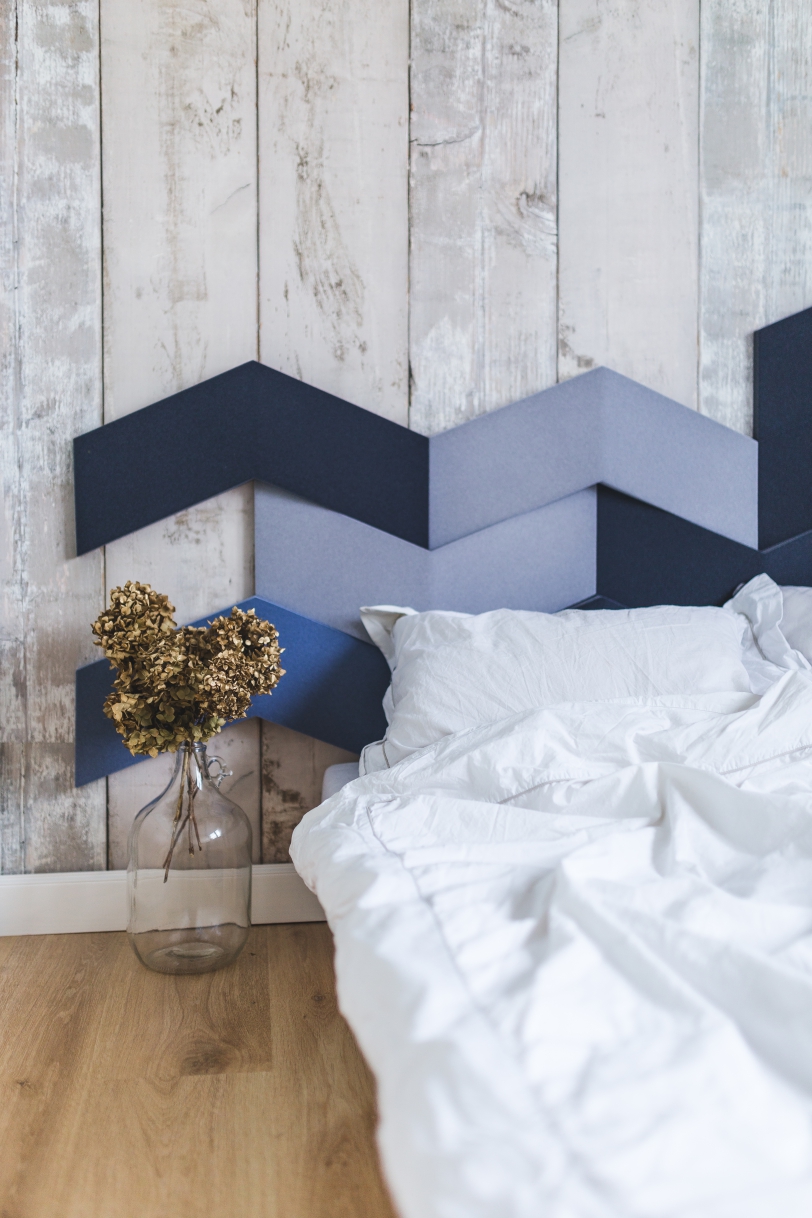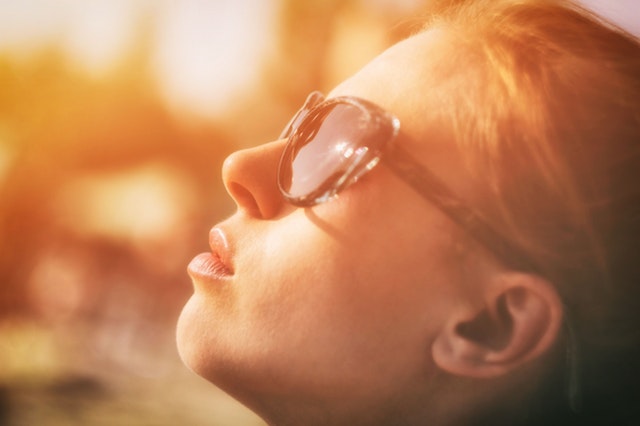If you’ve ever considered hopping aboard the green beauty train, chances are you’ve considered switching soaps. I’m talking about ditching that bar of Dove for a more natural, kinder alternative. You know, the patchouli-scented soaps you see at markets and thought only hippies bathed with?
A version of this article previously appeared on JacalynBeales.com
Most soaps available to us in stores or supermarkets are chalk-full of dyes, synthetics, chemicals, and other ingredients that are not only unkind to our skin but are typically unsafe for use when their ingredient lists are broken down and examined closely. Many soaps you find littering store shelves are not even soaps at all but, rather, mild detergent agents which have no business calling themselves “soap.” You may even notice that most “soaps” you find in stores don’t contain the word “soap” on their packaging at all–that’s because they can’t claim to be what they aren’t. They’re detergents, which means legally, most brands can’t label their “soap” products as just that: soap.
Scary, huh?
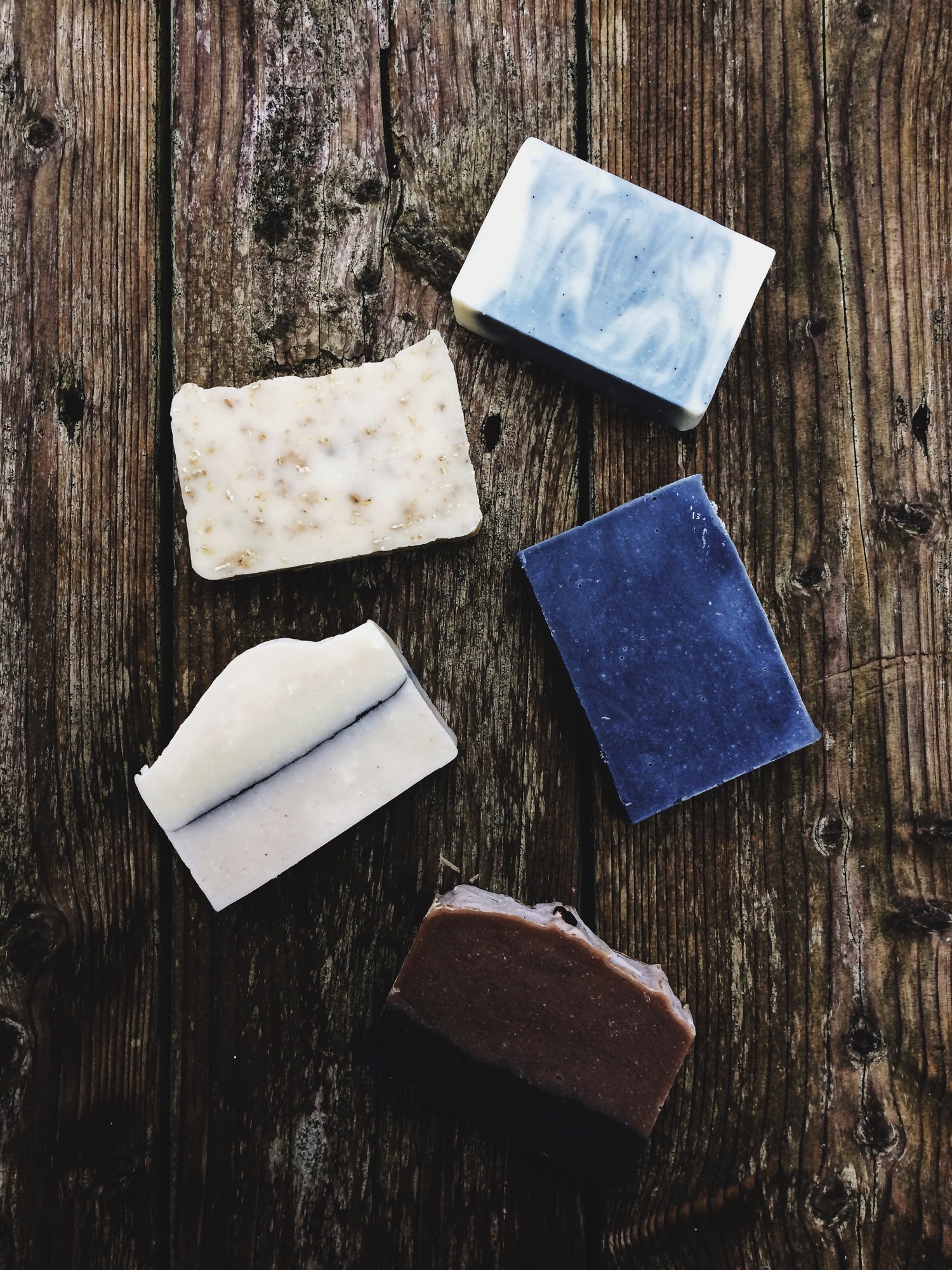
If the chemical-laden ingredient lists don’t get you, perhaps the use of unethical, unsustainable additives will. You may be surprised to learn, for instance, that most “soaps”–often called moisturizing bars, cleansing bars…you get the picture–contain palm oil (or a derivative of it), a notorious ingredient found in many a beauty and food product. Palm oil has become infamous for its destruction of habitats and ecosystems and its wildlife endangerment. The production of palm oil for use in commonly used items such as soaps has led to the destruction of irreplaceable land and the degradation of wild species’ populations for years, and it is one of the most popular monocultures on the planet. The “funny” thing is, soaps can easily be made without palm oil, but most mass-produced soap brands choose to look the other way. Independent makers and artisans, however, are recognizing the dangers and cruelty that using palm oil can have for habitats, animals, and ecosystems and are choosing to go palm-free.
But what does that mean for you? If you want to ditch the crappy, fake soaps for a more natural alternative, how do you choose the right soap and where do you find it? Let’s take a look at a few simple tips I generally follow when it comes to choosing the right natural soap(s).
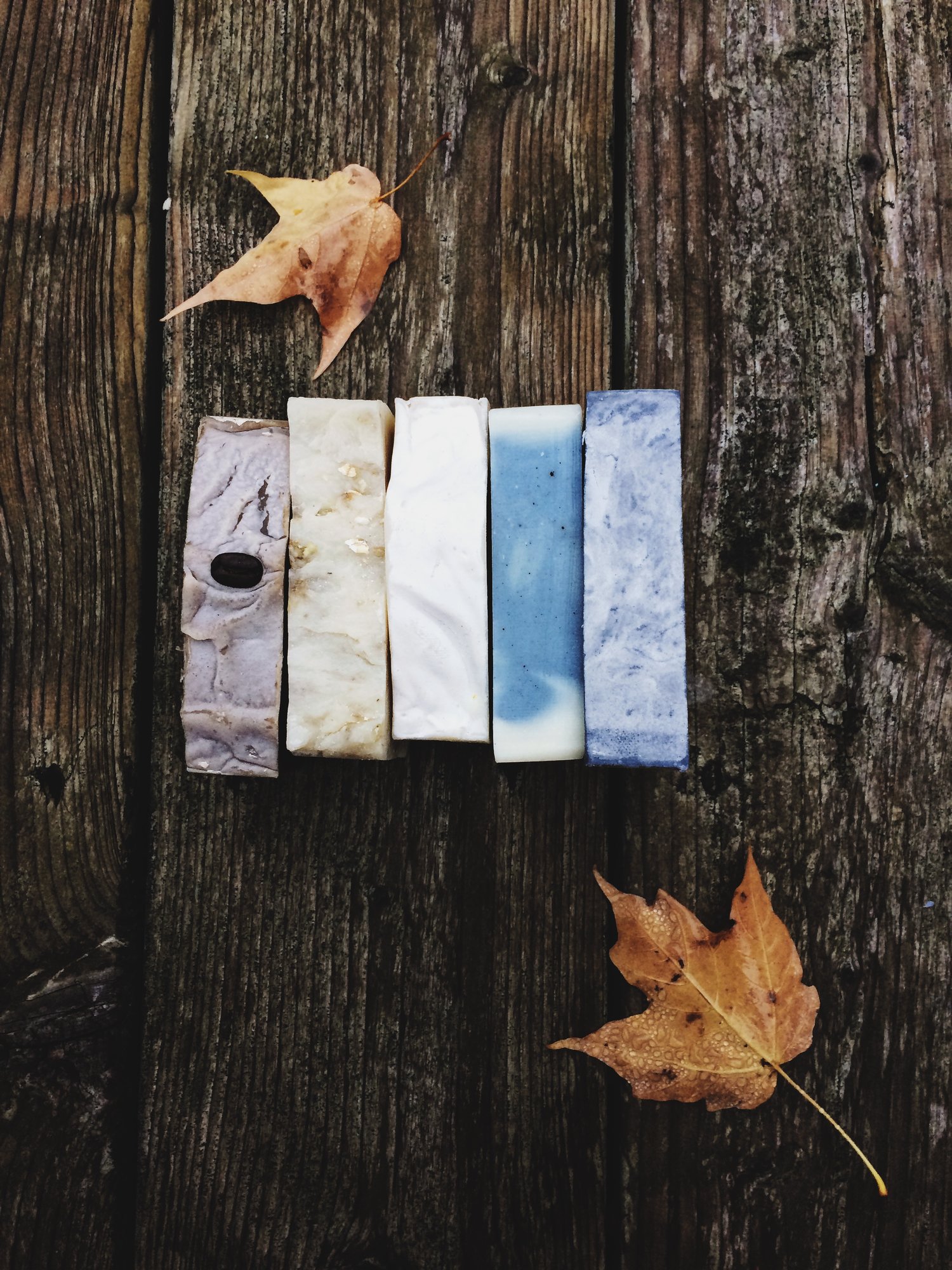
Avoid Palm-Based Soaps
This may sound pretty simple and, for those of us already living a palm-free lifestyle, avoiding palm-filled soap is likely second-nature. But if you’re unsure about palm oil, or haven’t a clue what ingredients are derived from it, it’s easy to be fooled into buying a palm-filled soap. Your first step should be to read up on the various names for palm oil and what the derivates are; that way, you’ll be able to recognize and identify when palm is being used in soaps so you can avoid buying those which contain the oil or any of its derivatives.
Natural Fats Are Your Friend
Many natural soap brands are beginning to sub out palm oil for natural fats like coconut oil or shea butter, which is good news not only for the environment but also for your skin. Natural soaps that contain oils like avocado, olive, and coconut typically include other fats like shea and cocoa butter which moisturize and soften the skin. These fats are naturally beneficial for the skin and can be sourced ethically and sustainably in most cases to ensure that your bar of soap is safe for your skin and the planet. It’s important to avoid soaps which use a slew of artificial ingredients or overly processed oils.
Go for Cold- and Hot-Processed Soaps
There are various methods for crafting soap, which include a simple method called “melt-and-pour.” However, not every method is a good method, and the melt-and-pour method of creating soap means you could end up purchasing a bar or two made with palm oil. Eeek! Melt-and-pour soaps are made using pre-made soap bases which often contain palm oil and animal fats, something you want to avoid (see my next tip) when buying natural soaps. Cold- and hot-processed soaps, on the other hand, allow makers to create soap from scratch, controlling what goes into each bar, how long their soap cures for, and what fats/oils they use, making cold or hot processed soaps the better option.
Give Vegan Soaps a Chance
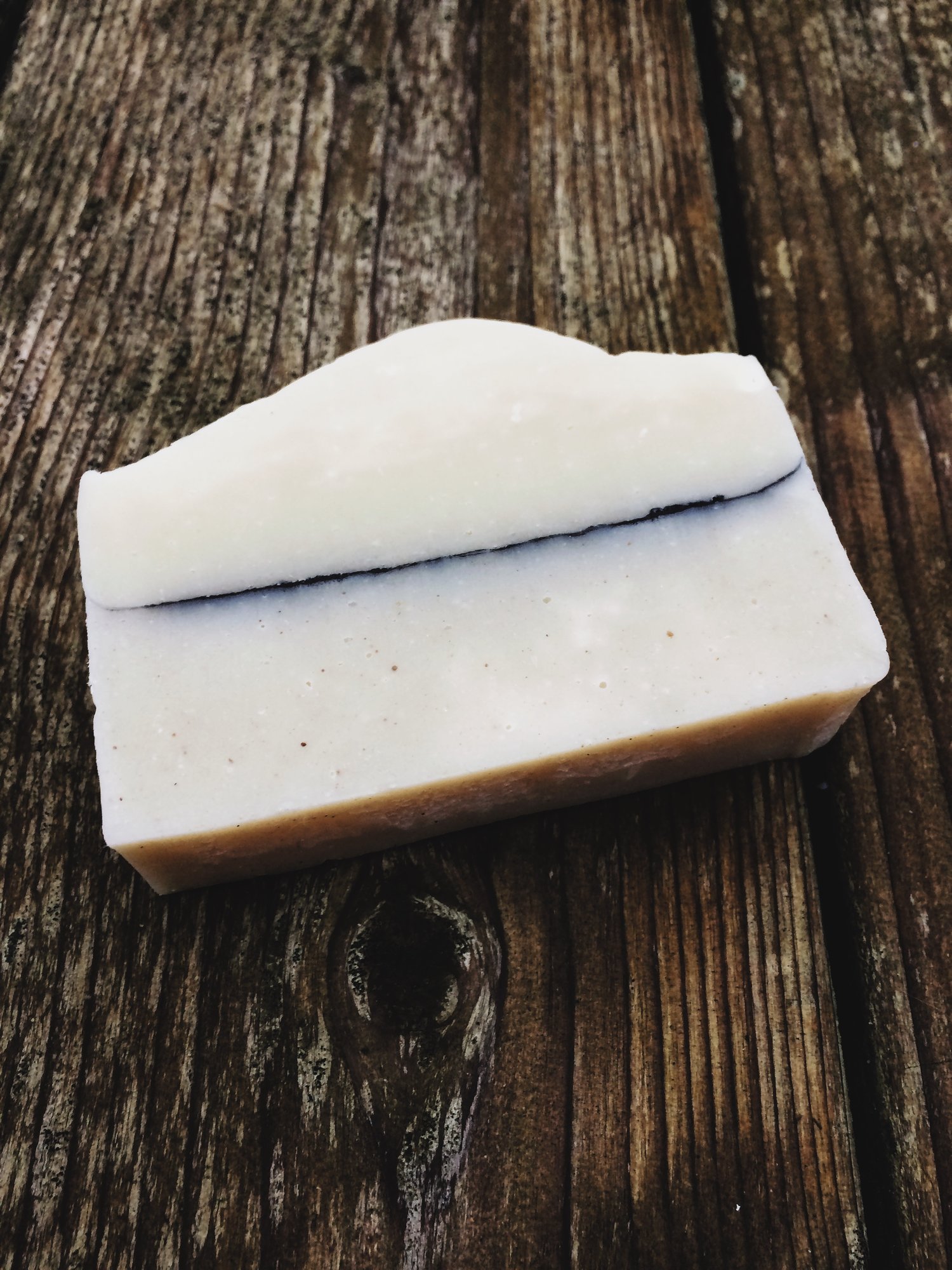
I know they say those honey and goats milk soaps are hella moisturizing, but let’s be honest, you don’t need those ingredients to make a stellar bar of soap. And many soap makers recognize the high demand for vegan products, which are kinder to our animal friends and the planet. Sourcing vegan soaps is far easier than you might think, and it starts with staying on the lookout for animal by-products like honey, milk(s), and lard made from animal fat. Typically, vegan soaps are not more or less expensive than non-vegan ones, but they are better for our planet, so why not give them a go?
Try 100% Natural Soap rather than 95% Natural Soap
I’ve come across many a bar of soap which claims to be 100% natural but that does, in fact, contain a synthetic preservative or two. That’s a no-no and something you should look closely at before buying a “natural” soap. Soap that is 100% natural must contain 100% natural ingredients, which means it must be free from anything unnatural, including artificial fragrances or perfumes. That’s why most natural soaps are either unscented or lightly perfumed using natural essential oils. Technically, a soap only has to contain 95% natural ingredients to be considered “natural,” but let’s cut the crap and go for the 100% natural stuff instead, right? The upside to using a 100% natural soap is that the ingredient list will be short yet brimming with great oils, fats, and butters. Be aware, however, that “natural” does not denote “organic,” and that organic soaps can be far more expensive due to the high cost of organic ingredients.
Expect Your Soap to Have a Shelf Life
Unlike artificial store-bought soaps, natural soaps (if they’re completely natural) are free from preservatives and synthetic hardening agents, which means they can deplete more quickly if left in water too long, or exposed to moisture for long periods of time. That’s why you may notice natural soap brands instruct you to keep your soap bars in a dry place or on a wooden block to prevent them from being exposed to undue moisture when not in use. Many brands I’ve used recommend their soaps be used within twelve months but, if cared for properly, your soaps could keep for a year or more. My hot tip for conserving soaps if you buy in bulk like I do is to keep them in the fridge or freezer. Alternatively, you can store them in a cool, dry place and cut them in half so you only use what you need, which a cost-effective tip if you’re on a budget.
The following brands are personal recommendations only; however, you can also do your own research to discover new brands or find ones which operate within your budget. My personal favorites are the soaps from Flora Hue, my local soap maker crafting vegan soaps with beautiful packaging.
Freedom Soap Co., Meow Meow Tweet, Woodlot, Urban Oreganics, EkoElla, Skipping Stones, Flora Hue.
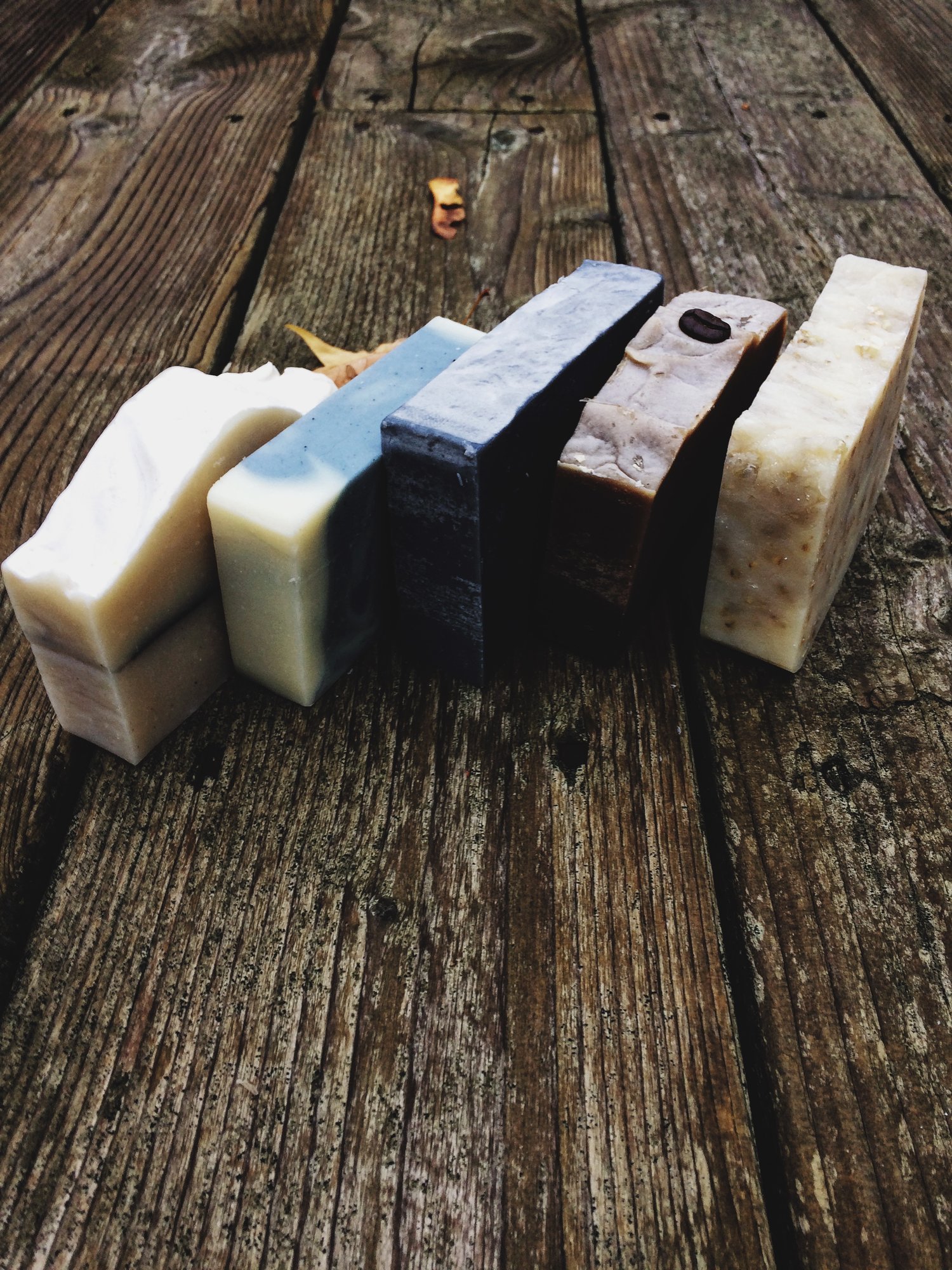
Are you a natural soap devotee?
Also by Jacalyn: Why Almond Milk Isn’t Actually Good for You (We’re Sad, Too)
Related: Are Silicones Causing Your Adult Acne?
7 Vegan and Palm-Free Beauty Brands
Get more like this—Subscribe to our daily inspirational newsletter for exclusive content!
__
Photos: Jacalyn Beales

